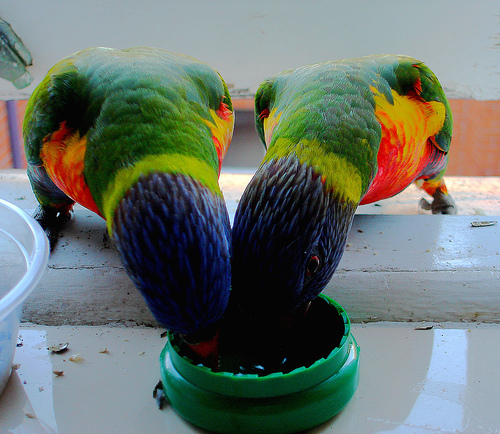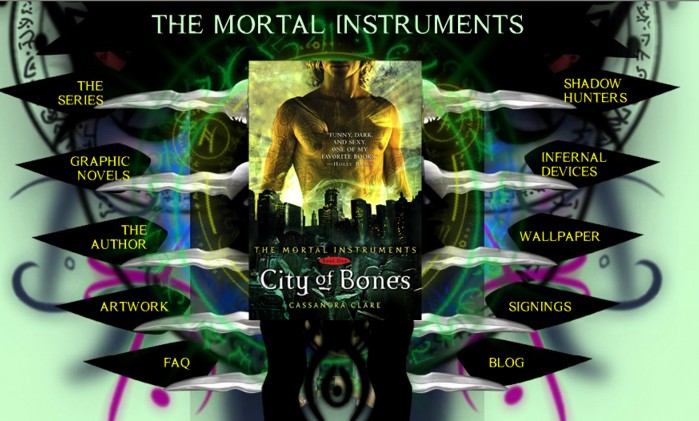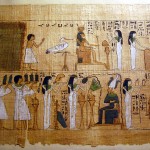That’s a rhetorical question, by the way. To make me feel a little appeased in my guilt for blog abandonment.
A few things have been happening, and these things would normally require a detailed and possibly time consuming write-up. Hence my blog absence. This is, sadly, not going to happen at a time when too many other things need to be done.
So…
Monday night I was one of the lucky ones to find a seat in BMW Edge for the free talk by Bill Henson (The light and dark and the shades of grey) to open the Melbourne Art Fair. Notice I didn’t say ‘the controversial Bill Henson’, the reason being that his talk was not, as some may have expected, a political or moral justification for the (fairly) recent censorship of his art (not photography, which is merely the medium). Surprisingly, his extremely esoteric talk used broad brushstrokes to paint a picture of civilisation shaped by centuries-old art, architecture, literature and music. I won’t attempt to summarise his talk but I think that one of his main themes was the need to expose young people to the history of our civilisation, to the breadth of artistic expression, in order to open up thinking, questions and discussion, and maintain a fuller context for the formation of understandings. Some may have expected a bitter, insecure man, lashing out at critics, as claimed in The Age article (written, surely, during Bill’s talk – or even before) which I read when I got home from the talk. These people were disappointed, then, because Bill’s composure and lack of defensiveness was noticeable.
We should be wary of governments and interest groupswho try to impose restrictions on the free exercise of theartistic imagination. Our zeal to protect innocence should not come at the cost of violating artistic experience.
If we believe that art is a high form of education, thatits basis is moral and its goal truth, then we should resistthe impulse that would deny the artist the right to deal with what may sometimes be ambiguous, complex anddisturbing.
Artists can seem like holy fools, they can seem likedevils. They may exhibit the cunning of the insane orthe illumination of the saint. But genuine art is the greatbridge between the inner world in each of us and theordinary world in which we live. Art shows us the truthand it should never be the quarry of the witch-hunter orthe social engineer. Any attempt to make the world betterby destroying or shackling art represents a repudiationof the truth.
(Not all reviews of Henson’s talk were unreasonable; this one wasn’t.)
So, that was that. And since then, I’ve enjoyed many conversations with various people about censorship, art and the education of young people.
The recent School Library Association of Victoria PD is another potential essay in the making. But I’m tired, so suffice it to say, I was immensely satisfied with the line-up of speakers, particularly the guest speaker, Joyce Valenza, and our own Adrian Camm.
The Bright Ideas blog has covered the main information and links from this day. I would just like to say that Joyce is a passionate educator who surely never sleeps because how else would she have managed to create such amazing resources. It wasn’t hard work at all listening to Joyce – she’s blessed with a vibrancy and creativity which makes everything look deceptively easy. Take a look at her wikis and look up the rest of her stuff too.
Adrian, I’m not a games person, but after your talk, I might consider conversion…
What else?
Well I’ve taken up the challenge at Kew High School of running a couple of PD sessions introducing Web 2.0 tools for authentic and connected learning and teaching. Since I’m new to Kew, it’s an entirely different experience presenting to people I don’t know, feeling uneasy about the fact that I can’t read their faces to ascertain their reaction to my assault on them. My Whitefriars experiences, on the other hand, were based on relationships and the gradual introduction and integration of Web 2.0 technology, often in context of a class which I taught collaboratively over a period of time. I much prefer ‘preaching’ to people I know, so that the conversation comes from a knowledge of how these people think and with respect for their individual styles as teachers.
Well, that’s enough for this post. Apologies for the rave.






